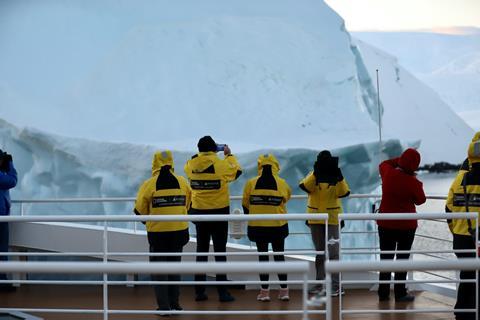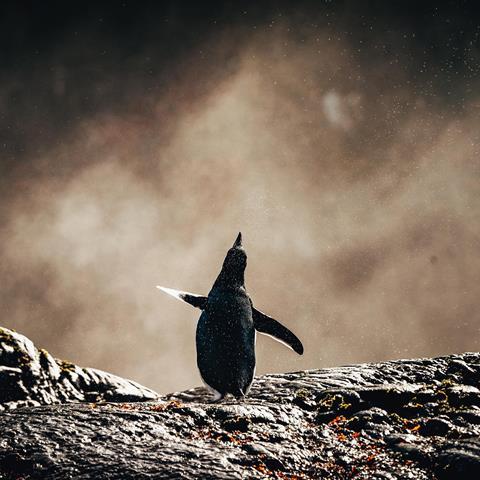In March of 2018, I returned home from Antarctica. I had a fresh perspective on my work and was equipped with an improved strategic plan and a new set of skills to enhance the impact I could have as a leader.
I have experienced first-hand the imbalance of women in science leadership roles during a 16-year career spanning across three continents. Although in recent times there has been an increase observed in the number of women applicants across UK higher education, in 2016/17 women still comprised of just 37% of science enrolments. This inequality is further amplified in leadership positions, with men much more likely to hold occupations that confer greater status, power and pay. Just 10-20% of women university graduates make it to senior decision-making roles or professional-level academia. The Homeward Bound initiative, which started in 2016, is designed to address these issues by empowering and equipping 1,000 women over a 10-year period with the skillsets to enhance their leadership and impact decision-making for a sustainable future.
During the 11 months prior to departure, I developed the four emerging components of my leadership programme, namely, scientific collaboration, strategic capability, leadership development, as well as visibility and science communication. I achieved these goals by using diagnostic tools, creating a personal strategic map, and developing my personal network through the fostering of new scientific collaborations. As a microbiologist whose research group largely focuses on the discovery of new antibiotics derived from the oceans, I was most aligned with the Oceans and Human Health research theme and so contributed to this. Generating such ideas and sharing both expertise and knowledge over international conference calls allowed for global collaboration and feedback. Furthermore, it facilitated the establishment of networks amongst the group. Our cohort was comprised of 80 scientifically minded women selected from 20 countries around the world, representing a highly diverse range of STEM fields and occupations and participants included a Nobel Prize-winning physicist, engineers, policymakers, a neuroscientist, CEOs, and coral reef conservationists.

Before we departed for Antarctica, we all gathered in Ushuaia, Argentina for three days. This time presented the cohort with an opportunity to network and carry out intensive leadership training prior to embarking on the expedition. On 18 February, we boarded the ship MV Ushuaia and sailed through the Beagle Channel (part of Darwin’s famous voyage), after which we crossed the perilous Southern Ocean where conditions are characterised by katabatic winds and rough seas. During the three weeks living aboard the MV Ushuaia whilst in Antarctica, there was focus placed on fostering new collaborations and strategic direction, as well as nurturing our own personal development. These pre-determined goals were achieved through a variety of different activities, such as the World Café on gender equality, a Science Symposium at Sea and multiple science-themed group discussions. In addition, the group was provided with the opportunity to visit five Antarctic research stations during the expedition in order to engage with hundreds of fellow scientists, ranging from ecologists to chemists. During these visits we discussed the highly impactful work carried out in the fragile ecosystem of Antarctica by these vastly differing scientific fields. Homeward Bound provided us with time, space and aided in developing a collaborative network. We came away from the expedition inspired to implement our newly acquired skills and perspectives, and empowered to facilitate a positive impact from positions of leadership in the future.
Read more about the Homeward Bound Project here.








No comments yet